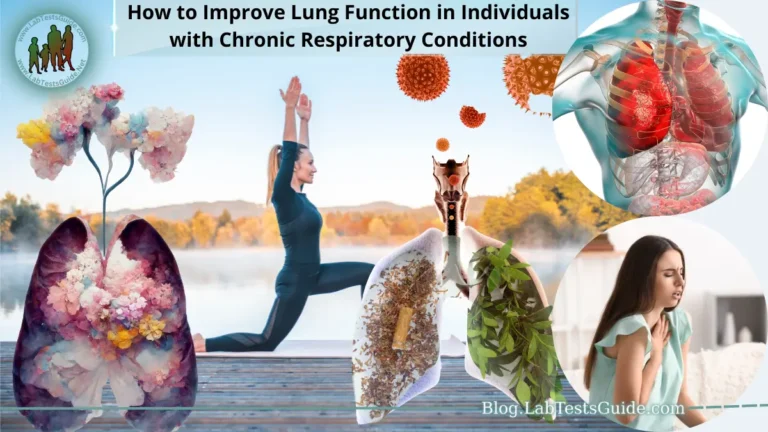Hypertension, commonly known as high blood pressure, is a chronic medical condition characterized by elevated blood pressure levels. It is a significant global health concern and a leading risk factor for various cardiovascular diseases, including heart attacks, strokes, and kidney problems. Hypertension is often referred to as the “silent killer” because it typically has no symptoms but can cause severe damage to the body if left untreated.

Blood pressure is measured using two numbers: systolic pressure and diastolic pressure. The systolic pressure represents the force exerted on the artery walls when the heart contracts, while the diastolic pressure indicates the pressure in the arteries when the heart is at rest between beats. Normal blood pressure is generally considered to be around 120/80 mmHg (millimeters of mercury) or lower.
Understanding Blood Pressure:
Blood pressure is a measurement of the force exerted by circulating blood against the walls of the arteries as the heart pumps it throughout the body. It is recorded as two numbers: systolic pressure over diastolic pressure, measured in millimeters of mercury (mmHg).
- Systolic Pressure: This is the higher number and represents the pressure in the arteries when the heart contracts and pumps blood into the circulation. It reflects the maximum force exerted on the arterial walls.
- Diastolic Pressure: This is the lower number and represents the pressure in the arteries when the heart is at rest between beats. It reflects the minimum force exerted on the arterial walls.
Blood pressure is expressed as a ratio of systolic over diastolic pressure. For example, a blood pressure reading of 120/80 mmHg would indicate a systolic pressure of 120 mmHg and a diastolic pressure of 80 mmHg.
Interpreting blood pressure readings:
- Normal: Blood pressure below 120/80 mmHg is considered within the normal range.
- Elevated: A systolic pressure between 120-129 mmHg and a diastolic pressure below 80 mmHg is categorized as elevated blood pressure.
- Hypertension Stage 1: Systolic pressure between 130-139 mmHg or diastolic pressure between 80-89 mmHg indicates stage 1 hypertension.
- Hypertension Stage 2: Systolic pressure of 140 mmHg or higher, or diastolic pressure of 90 mmHg or higher, indicates stage 2 hypertension.
- Hypertensive Crisis: A systolic pressure exceeding 180 mmHg and/or a diastolic pressure exceeding 120 mmHg is considered a hypertensive crisis, requiring immediate medical attention.
Risk Factors for Hypertension:
Here are the key risk factors.
- Age: The risk of developing hypertension increases with age. As people get older, blood vessels become less flexible, leading to an increase in blood pressure.
- Family History: Having a family history of hypertension can increase the risk of developing the condition. If your parents or close relatives have hypertension, you may have a higher likelihood of developing it as well.
- Obesity or Overweight: Excess weight, particularly when concentrated around the waist, puts extra strain on the heart and increases the risk of hypertension.
- Unhealthy Diet: Consuming a diet high in sodium (salt), saturated fats, cholesterol, and processed foods can contribute to high blood pressure. A diet low in fruits, vegetables, and whole grains is also associated with an increased risk.
- Sedentary Lifestyle: Lack of regular physical activity and a sedentary lifestyle can contribute to the development of hypertension. Exercise helps keep the heart and blood vessels healthy and contributes to better blood pressure control.
- Tobacco Use: Smoking or exposure to secondhand smoke raises blood pressure temporarily and damages blood vessels, increasing the risk of hypertension.
- Excessive Alcohol Consumption: Drinking alcohol in excess can lead to an increase in blood pressure. Limiting alcohol intake is important for maintaining healthy blood pressure levels.
- Stress: Chronic stress and high levels of mental or emotional stress can contribute to hypertension. Stress triggers temporary increases in blood pressure, and over time, chronic stress can lead to sustained high blood pressure.
- Certain Medical Conditions: Certain medical conditions can increase the risk of developing hypertension, such as diabetes, kidney disease, sleep apnea, and hormonal disorders like hyperthyroidism or Cushing’s syndrome.
- Ethnicity: Some ethnic groups, such as African Americans, have a higher risk of hypertension. They also tend to develop hypertension earlier in life and have more severe complications associated with the condition.
What are Prevention Strategies:
Here are some effective prevention strategies.
Healthy Lifestyle Habits:
- Balanced Diet: Follow a diet that is rich in fruits, vegetables, whole grains, lean proteins, and low-fat dairy products. This includes reducing the intake of sodium (salt), saturated fats, trans fats, and cholesterol.
- Regular Exercise: Engage in moderate-intensity aerobic exercise for at least 150 minutes per week, or vigorous-intensity exercise for 75 minutes per week. Activities like brisk walking, swimming, cycling, or jogging can help lower blood pressure.
- Weight Management: Maintain a healthy weight or work towards achieving a healthy weight if overweight or obese. Losing even a small amount of weight can have a positive impact on blood pressure.
- Limiting Sodium Intake: Reduce the consumption of high-sodium foods such as processed and packaged foods, fast food, and salty snacks. Aim for a daily sodium intake of no more than 2,300 milligrams (mg) or even lower if advised by a healthcare professional.
- Moderating Alcohol Consumption: Limit alcohol intake to moderate levels, which means up to one drink per day for women and up to two drinks per day for men. Excessive alcohol consumption can raise blood pressure.
- Stress Management: Practice stress-reduction techniques such as deep breathing exercises, meditation, yoga, or engaging in hobbies and activities that help relax the mind and body. Chronic stress can contribute to hypertension, so finding healthy ways to manage stress is essential.
- Quitting Smoking: If you smoke, quitting is crucial for preventing hypertension. Smoking damages blood vessels and raises blood pressure temporarily. Quitting smoking has numerous other health benefits as well.
- Limiting Caffeine Intake: While caffeine does not cause a long-term increase in blood pressure, it can temporarily raise blood pressure. It is advisable to moderate caffeine intake by limiting coffee, tea, energy drinks, and other caffeinated beverages.
- Regular Health Check-ups: Schedule regular check-ups with a healthcare professional to monitor your blood pressure and overall health. Regular monitoring allows for early detection of any changes or signs of hypertension.
How to Manage Hypertension:
Here are strategies for managing hypertension.
- Medications: Depending on the severity of your hypertension, your healthcare professional may prescribe medications to help lower and control your blood pressure. Commonly prescribed medications include:
- Diuretics: These medications help the kidneys eliminate excess sodium and water from the body, reducing the volume of blood and lowering blood pressure.
- Beta-blockers: Beta-blockers work by reducing the workload on the heart by blocking the effects of adrenaline. This helps lower blood pressure and heart rate.
- Angiotensin-Converting Enzyme (ACE) Inhibitors: ACE inhibitors relax blood vessels, reducing the production of a hormone called angiotensin II, which constricts blood vessels. This leads to lower blood pressure.
- Angiotensin II Receptor Blockers (ARBs): ARBs block the action of angiotensin II, allowing blood vessels to relax and blood pressure to decrease.
- Calcium Channel Blockers: These medications help relax and widen blood vessels by preventing calcium from entering the muscle cells of the heart and blood vessels, thereby lowering blood pressure.
- Other Medications: In some cases, additional medications such as alpha-blockers, central agonists, or direct renin inhibitors may be prescribed to manage hypertension.
It’s important to take prescribed medications as directed by your healthcare professional and attend regular follow-up appointments to monitor the effectiveness of the medications.
Dietary Approaches:
- DASH Diet: The Dietary Approaches to Stop Hypertension (DASH) diet emphasizes fruits, vegetables, whole grains, lean proteins, and low-fat dairy products. It is low in sodium and saturated fats. This eating plan has been shown to help lower blood pressure.
- Mediterranean Diet: The Mediterranean diet focuses on consuming whole, unprocessed foods, including fruits, vegetables, whole grains, lean proteins (such as fish and poultry), healthy fats (such as olive oil), and moderate amounts of red wine. This diet has also been associated with lower blood pressure levels.
- Regular Exercise: Engage in regular aerobic exercise for at least 150 minutes per week, or as advised by your healthcare professional. Exercise helps lower blood pressure, strengthen the heart, and improve overall cardiovascular health. Choose activities you enjoy and make them a part of your routine.
- Stress Reduction Techniques: Practice stress-reduction techniques such as deep breathing exercises, meditation, yoga, or engaging in hobbies and activities that help relax the mind and body. Chronic stress can contribute to hypertension, so managing stress is essential.
Monitoring Blood Pressure at Home: Invest in a home blood pressure monitor and measure your blood pressure regularly as advised by your healthcare professional. This allows you to track your progress and make adjustments accordingly.
- Limiting Alcohol Consumption: If you consume alcohol, do so in moderation. Limit intake to up to one drink per day for women and up to two drinks per day for men. Excessive alcohol consumption can raise blood pressure.
- Quitting Smoking: If you smoke, quitting is crucial for managing hypertension. Smoking damages blood vessels and raises blood pressure temporarily. Quitting smoking has numerous other health benefits as well.
- Complementary and Alternative Therapies: Some individuals find benefit from complementary and alternative therapies such as acupuncture, relaxation techniques, or herbal supplements. However, it’s important to consult with a healthcare professional before incorporating these therapies into your management plan.
- Importance of Regular Medical Follow-up: Maintain regular appointments with your healthcare professional to monitor your blood pressure, adjust medications if necessary, and address any concerns or questions you may have.
Importance of Regular Medical Follow-up:
Here are the reasons why it is important.
- Blood Pressure Monitoring: Regular follow-up visits allow healthcare professionals to monitor your blood pressure and ensure it is within the target range. This helps assess the effectiveness of your treatment plan and make necessary adjustments, such as medication dosage changes or additional therapies.
- Medication Management: If you are taking medications for hypertension, regular follow-up visits allow healthcare professionals to review your medication regimen, assess its effectiveness, and address any side effects or concerns you may have.
- Detection of Complications: Hypertension can lead to various complications if left uncontrolled. Regular follow-up visits enable healthcare professionals to monitor your overall health and detect any signs or symptoms of complications, such as heart disease, stroke, kidney problems, or eye damage. Early detection and intervention can prevent or minimize the impact of these complications.
- Lifestyle Guidance and Support: Healthcare professionals can provide guidance and support for adopting and maintaining a healthy lifestyle. They can help you develop personalized strategies for managing risk factors, such as weight management, dietary modifications, exercise routines, stress reduction techniques, and smoking cessation.
- Motivation and Accountability: Regular follow-up visits serve as a source of motivation and accountability. Knowing that you have scheduled appointments can help you stay focused on managing your hypertension and making positive lifestyle changes.
- Education and Empowerment: Follow-up visits provide an opportunity for healthcare professionals to educate you about hypertension, its management, and the importance of adhering to the recommended treatment plan. Understanding your condition and having the knowledge and tools to manage it empowers you to take an active role in your own health and make informed decisions.
FAQs:
What is considered normal blood pressure?
Normal blood pressure is typically considered to be around 120/80 mmHg or lower. The systolic pressure should be below 120 mmHg, and the diastolic pressure should be below 80 mmHg.
What are the symptoms of hypertension?
Hypertension is often referred to as the “silent killer” because it usually has no noticeable symptoms. Most people with hypertension do not experience any specific signs or symptoms. The only way to know if you have high blood pressure is to have it measured.
How often should I have my blood pressure checked?
It is recommended to have your blood pressure checked at least once every two years if your blood pressure is within the normal range (120/80 mmHg or lower). If you have been diagnosed with hypertension or have other risk factors, such as a family history of hypertension or certain medical conditions, more frequent monitoring may be necessary. Consult with your healthcare professional to determine the appropriate frequency of blood pressure checks for your specific situation.
Can lifestyle changes alone lower blood pressure?
Yes, lifestyle changes can be effective in lowering blood pressure, especially in cases of mild to moderate hypertension. Adopting a healthy diet, engaging in regular exercise, managing stress, limiting sodium intake, moderating alcohol consumption, and quitting smoking can all contribute to lowering blood pressure.
Can hypertension be cured?
Hypertension is a chronic condition, and in most cases, it cannot be cured. However, with proper management, including lifestyle changes and medication if necessary, blood pressure can be controlled and maintained within a healthy range. This helps to prevent complications and maintain overall cardiovascular health.
Are there any natural remedies for hypertension?
Some individuals may find certain natural remedies or complementary therapies helpful in managing hypertension, such as consuming foods rich in potassium (e.g., bananas, spinach), practicing relaxation techniques, or taking herbal supplements (e.g., garlic extract, hawthorn). However, it’s important to consult with a healthcare professional before using any natural remedies to ensure they are safe and effective for your specific situation.
Can hypertension be reversed through weight loss?
Losing weight, particularly if you are overweight or obese, can have a positive impact on blood pressure levels. Weight loss can help lower blood pressure, reduce strain on the heart, and improve overall cardiovascular health. It is important to combine weight loss with other lifestyle changes, such as a healthy diet and regular exercise, for optimal results.
Conclusion:
Hypertension, or high blood pressure, is a prevalent and serious health condition that requires proactive management to prevent complications and maintain optimal cardiovascular health. By adopting a healthy lifestyle, managing risk factors, and following a treatment plan prescribed by healthcare professionals, individuals can effectively prevent and manage hypertension.






